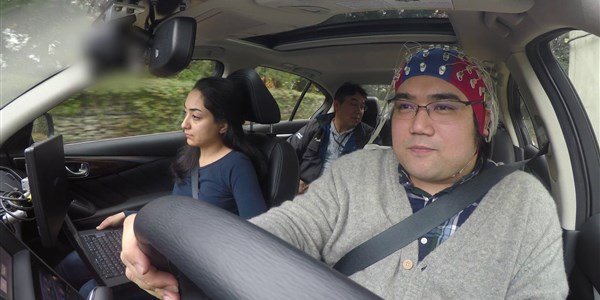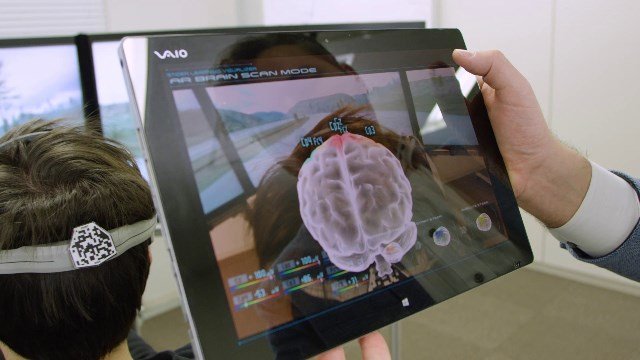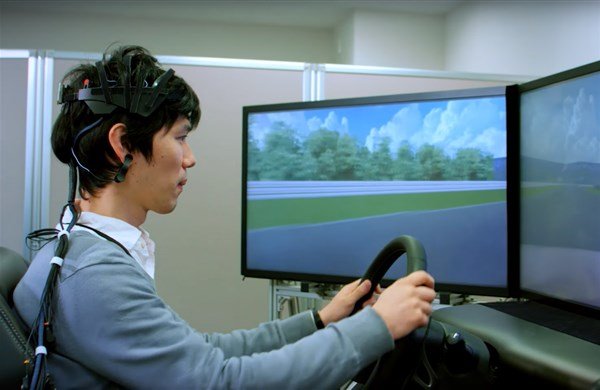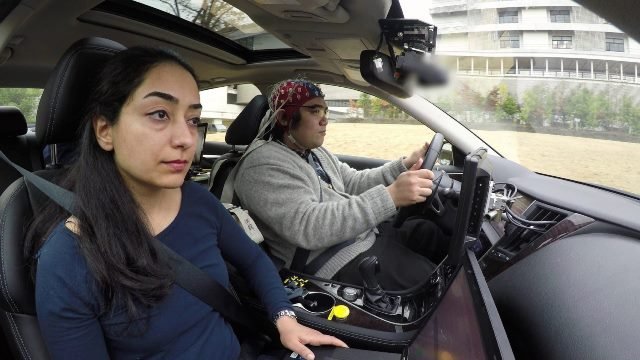Nissan develops 'B2V' System That Lets You Drive A Car With Your Brain
For science and tech enthusiasts, the concept of ‘driverless’ cars, is no longer new to us. However, we might have to wait a little bit longer - as lovers of futuristic automobs - for a future, where they would go mainstream.
Despite the technological innovations embarked by giant automakers, there still would be a need for human drivers who would always be behind the wheels, just in case an automobile decides to go ‘kablooey’.
Technology is still growing in leaps and bounds, and as we continuously come up with incredible ideas, science and technology is always waiting, with arms open, to tell us – Yes! It can be done!
Brain-decoding driving system
In a feat of technological advancement, Japanese automaker, Nissan, has invented a technology created to make driving much more pleasurable for folks. Nissan has designed a “brain coding” system which is created to give automobiles the ability to preconceive a driver’s intended action, such as; making a driving turn, accelerating, or applying the brakes.
By anticipating the driver’s action, the brain decoding system can then initiate the driver’s intended action before he or she does so.
So cool, right?

The new brain decoding system is called “Brain to Vehicle” a.k.a “B2V”.
How it works
The B2V system makes use of a ‘skullcap’ which is studded with electrodes to capture the brain activity of a driver, and then an artificial intelligence goes on to interpret it in order to direct the car to begin speeding up, slowing down or turning.

The brain signals that will trigger the movements of a driver’s hands or feet are detected early by the B2V, way before the movements occur.
The company in a published statement stated that the feature of the B2V goes on to cut the reaction times for driving movements by as much as half a second. Even when the driver goes on to turn the wheel or push the step of the pedals as expected, it actions take place with an enhanced sense of nimbleness.

Daniele Schillaci, one of Nissan’s executive vice president added in a statement, that;
"When most people think about autonomous driving, they have a very impersonal vision of the future, where humans relinquish control to the machines. B2V technology does the opposite."
In a self-driving mode, the same system in the car can monitor signs of a driver’s discomfort and then initiate corrective actions. For instance if the driver behind the wheel is too hot, the B2V system would go on to crank the air-conditioner up, and even go further to adjust the position of the air vents to suit the driver.

Questions and What Experts Think
Despite how good it all sounds, some experts still express doubts and inhibition about the technology, most especially the electrode-studded skullcap.
Director of the University of Michigan Transportation Research Institute, Dr. Jim Sayer, in an email, recently told NBC News MACH that;
"Anything that would require the driver to wear any type of sensor would be deemed intrusive."
"I think that some drivers might also wonder what other thoughts are being monitored. So I'm not too sure about the practicalities of the technology's adoption."
Dr. Sayer further questioned the possible reaction of the B2V system, should the driver decide to react with spontaneity and on impulse, and does something ill-advised or unsafe, such as; kissing the car in front to register displeasure at being slow or to signal displeasure at having been cut-off.
Sayer asked;
"Is the system going to act on those types of thoughts, or only the 'legitimate' and safe ones?"
Dr. Chris Gerdes, the director of Stanford University's Center for Automotive Research, who is also a known expert of automotive technology, queried the system’s ability to pinpoint exact brain activities that are relevant.
In an email to MACH, Dr. Gerdes opined that it presents a "tricky problem" because;
"The brain is used for all sorts of things, so sorting out the signal you want from the 'noise' of other brain activity is often difficult."
Conclusion
Potential customers - of which there would be no doubt - would be thousands or more, and would certainly get to see and experience for themselves if truly the brain decoding system would perform as expected, and as claimed by the automaker, Nissan.
Nissan demonstrated the B2V between the 9th and 12th of January 2018, using a driving simulator at the Consumer’s Electronics Show (CES) in Las Vegas.
So..........Brain-controlled driving?

Reference:
Further Reading:
Thank you for your time and for reading my post.
If you found this post interesting, then kindly UPVOTE, RESTEEM and FOLLOW @rickie, for more quality posts.
You Can Check Out My Other Posts Below:
- Nano-Technology Can Aid The Eradication of Viruses and Viral Infections
- The First Battery-Powered Aircraft Has Taken Its First Flight
- Windows Of Buildings Can Become Transparent Solar-Power Generators Via Technology
- Some Of The Strangest and Unusual Phobias Existing Today
- Studies Show That Anaesthetics Do More Than Just Induce Sleep
- Proper Exercise Can Reverse Damage To An Aging Heart

Interesting but I'm not sure if this should be welcomed. :-)